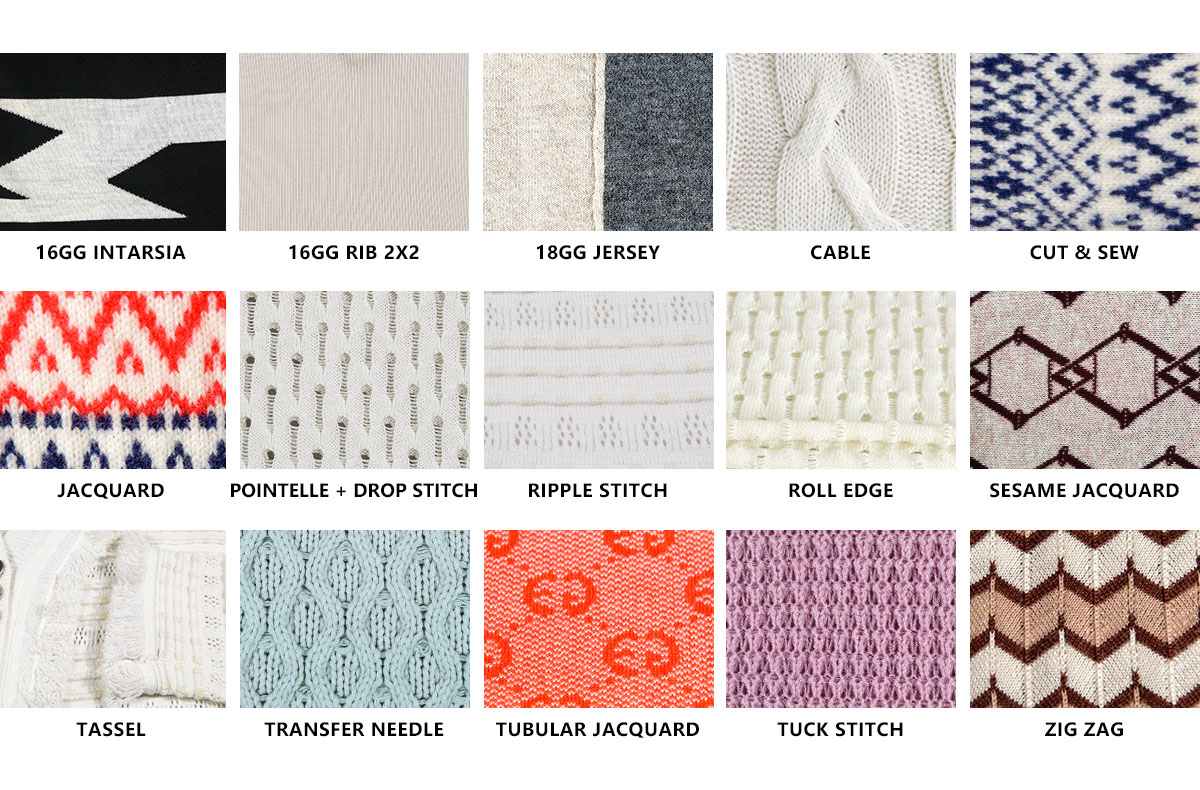Technology

The art of sweater craftsmanship encompasses various techniques that add unique textures, patterns, and designs to the fabric. From printing to embroidery, jacquard to inlay, and even crochet, each technique offers distinct creative possibilities. With 21 years of experience in the sweater industry, your company has undoubtedly gained a comprehensive understanding of all sweater craftsmanship techniques,our manufacturer is well-equipped to deliver high-quality products that showcase expertise in printing, embroidery, jacquard, intarsia, crochet, and more.
1, Printing: Printing on sweaters involves applying designs or patterns onto the fabric using specialized techniques such as screen printing or digital printing. Screen printing employs a stencil and ink to transfer the design onto the fabric, while digital printing utilizes computer-controlled printers to achieve intricate and detailed patterns.
2, Embroidery: Embroidery is a decorative technique that involves stitching designs onto the sweater fabric using needles and threads. Intricate patterns, logos, or text can be meticulously created through various embroidery stitches, such as satin stitch, chain stitch, or cross-stitch.
Jacquard: Jacquard is a complex technique that creates intricate, multicolored patterns or images directly into the fabric. It utilizes a Jacquard loom or a computer-controlled knitting machine to knit different colored yarns together, resulting in beautiful and detailed designs.
3, Inlay: Inlay, also known as intarsia, is a method of creating patterns or motifs by knitting in different colored yarns. With inlay, distinct blocks of color are knitted into the fabric, creating bold and geometric designs.
4, Crochet: Crochet is a technique that involves using a hooked needle to create loops and interlocking stitches. Sweaters can be embellished with crochet details such as borders, edgings, or even entire sections of intricate crochet patterns. Crochet adds a delicate and textured touch to the fabric.
5, Appliqué: Appliqué involves attaching cut-out fabric shapes onto the sweater using stitching or adhesive. This technique allows for the addition of contrasting textures and colors, as well as the incorporation of different fabrics or materials.
6, Beading: Beading is a meticulous craft that involves attaching small beads or sequins onto the sweater fabric. Beads can be sewn individually or in patterns to create shimmering accents and embellishments.
7, Ribbing: Ribbing is a common technique used to create the cuffs, collar, and hem of a sweater. It involves knitting alternating rows of knit and purl stitches, resulting in a stretchy and elastic ribbed texture.
8, Cable Knitting: Cable knitting is a technique that creates raised, intertwined patterns resembling cables. It involves crossing stitches over each other using a cable needle, producing intricate and visually appealing designs.
9, Patchwork: Patchwork involves combining different fabric pieces to create a visually striking design. Fabric patches of various colors, patterns, and textures are sewn together, resulting in a unique and eclectic sweater.
10, Hand-Dyeing: Hand-dyeing allows for the creation of custom colors and unique patterns. Sweaters can be dyed using various methods, such as tie-dye, dip-dye, or hand-painting, resulting in vibrant and personalized designs.
These craftsmanship techniques, including crochet, contribute to the artistry and craftsmanship of sweater production. Each technique requires skill, precision, and creativity to produce distinctive and high-quality sweaters. Whether it's through printing, embroidery, jacquard, inlay, crochet, or other methods, these craftsmanship techniques add an extra layer of artistry to the world of sweaters, ensuring that each piece is a unique and beautiful expression of design.
